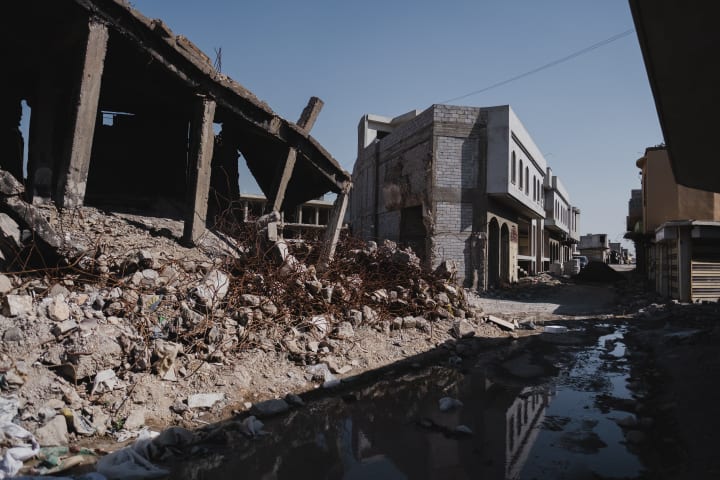
Shocking or scary events lead to psychological trauma. Trauma leads to the apparition of post-traumatic stress disorder. This disorder affects the lives of people for years or even decades after the end of the traumatic event. Soldiers often report going through psychological trauma, because of the violent nature of war itself. Unfortunately, civilians become victims of wars, too, and because, as compared to soldiers, they are defenseless (since they do not carry weapons) civilians are affected even more severely by war trauma. Seeing people get injured or killed leads to trauma, because of some characteristics of the human psyche. Any violent event is interpreted by the brain as a potential danger. This leads to fear and a prolonged sensation of fear remains imprinted in the memory for a long time. The result is that it manifests itself even after years, as nightmares or flashbacks.

Treatment does not always work for patients with post-traumatic stress disorder. The memories of war violence can be triggered later, in times of peace, by simple events such as loud noises, people shouting, or even the sound of an ambulance siren. The recollection of the traumatic events can create anxiety and a sensation of distress.
The mirror neurons play an important part in the formation of the trauma. These are brain cells that react both when an action is performed as well as when it is observed in someone else. They lead to empathy because they make us feel the joy of somebody who laughs and the sadness of somebody who cries. They tell us what another person feels inside, by just looking at them. Thus mirror neurons play an important role in socialization, as they help people interact more efficiently. In times of war, the same neurons make us feel the pain of a wounded soldier or the fear of a civilian who is hiding in a bomb shelter.

The brain learns from previous events. Thus, if we went once through a dangerous situation, we remember it, in order to avoid this situation, on another occasion. This is an evolutive adaptation, meant to protect the individuals from harm and help them survive. Any new situation that resembles the traumatic event, makes the brain become alert to danger, in order to protect the individual from harm. Nevertheless, a very traumatic event can trigger alertness even in situations that are not a real danger. This is why war victims can get panic attacks from triggers that induce no reaction in a person who never had a traumatic event. This situation makes life difficult and victims often need psychological counseling.

Civilians, who are victims of wars, go through many traumatic events. Children can be separated from their parents, wives lose their husbands in battle, parents lose their children, some people get injured and are disfigured as a result. They see people die, sometimes even a painful death, and seeing pain, can create sensations of panic and fear, and these remain imprinted in the memory for the rest of their lives. Seeing people kill other people, makes them feel that they cannot trust others and that other people represent a potential danger all the time. Such experiences may lead to social anxiety, and make the person become depressive and withdrawn.
All the scary events seen in wars, lead to mental health problems, such as anxiety, panic attacks, depression, or post-traumatic stress disorder. In severe cases, victims can even become suicidal and psychological counseling is very important in such cases.
Among the civilians, some groups are more vulnerable to mental disorders after war trauma. Women, children, the elderly, and the disabled are the most vulnerable groups. The fact that, even in times of peace, these social groups are more dependent on other members of society for protection and safety, makes them feel much much more vulnerable in the case of an armed conflict.

Depending on the degree of trauma, the treatment may be more or less efficient. Emotional support is very important. If a person has a loving family and a social environment that shows support and understanding, then the recovery will be easier. It is important to make the victim feel safe. This will reduce the severity of the anxiety symptoms and will help them cope with new life situations.






Comments
There are no comments for this story
Be the first to respond and start the conversation.